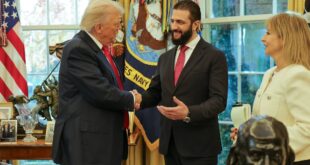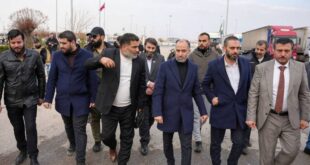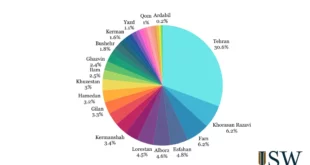ARBIL, Iraq (Reuters) – Iraq’s Kurdish autonomous region has agreed to withdraw troops from a neighboring Iraqi province and hand over security in the area to forces of the central government, a Kurdish official said.
Kurdish officials have struck an agreement with the central government in Baghdad to withdraw the 4,000 Kurdish troops, known as Peshmerga, from restive Diyala province over the next 10 days, said Jaffar Mustafa, Kurdistan’s Peshmerga minister.
The Pershmerga, who evolved from guerrilla cadres fighting against Saddam Hussein into the official security force of the Kurdish autonomous region, have been patrolling ethnically Kurdish parts of Diyala for more than a year.
Diyala remains one of the bloodiest areas of Iraq at a time when overall violence in the country has declined sharply.
The province, with a religious mix of Sunni and Shi’ite Muslims and an ethnic mix of Arabs and Kurds, has been the scene of a crackdown by U.S. and Iraqi government forces over the past few weeks, searching homes and arresting suspected militants.
Parts of Diyala are seen as one of the few remaining strongholds for Sunni Arab al Qaeda militants.
After the security operation ends and the Kurdish troops are withdrawn from Diyala, they will be folded into regular Iraqi forces under the authority of the defense ministry, Mustafa told Reuters late on Friday in the Kurdish capital Arbil.
Defence Ministry spokesman Mohammed al-Askari confirmed the Peshmerga would be integrated into a Defence Ministry division and based in Kurdistan from August 25.
“The 34th Peshmerga Brigade will leave Diyala to join the 15th mountain division within Kurdistan,” Askari said.
Tensions between Kurds and other Iraqi groups have intensified in recent weeks over the northern oil-rich city of Kirkuk, which Kurds want to make part of Kurdistan.
Parliament adjourned for a summer break earlier this month without passing a long-awaited provincial elections law because politicians could not agree on provisions that will shape the future of Kirkuk, home to a mix of Kurds, Turkmen and Arabs.
 Eurasia Press & News
Eurasia Press & News


